
**We empower practitioners to tailor learning experiences that fit their own needs to drive change: **Participants do not stop work to learn, every step of the process is embedded in and focused on their daily work. Typical learning events include:

**We empower practitioners to tailor learning experiences that fit their own needs to drive change: **Participants do not stop work to learn, every step of the process is embedded in and focused on their daily work. Typical learning events include:

Our approach based on intrinsic motivation , continuous learning and problem–solving leads to impact. Practical implementation with **peer support **accelerates progress to get results and document impact.
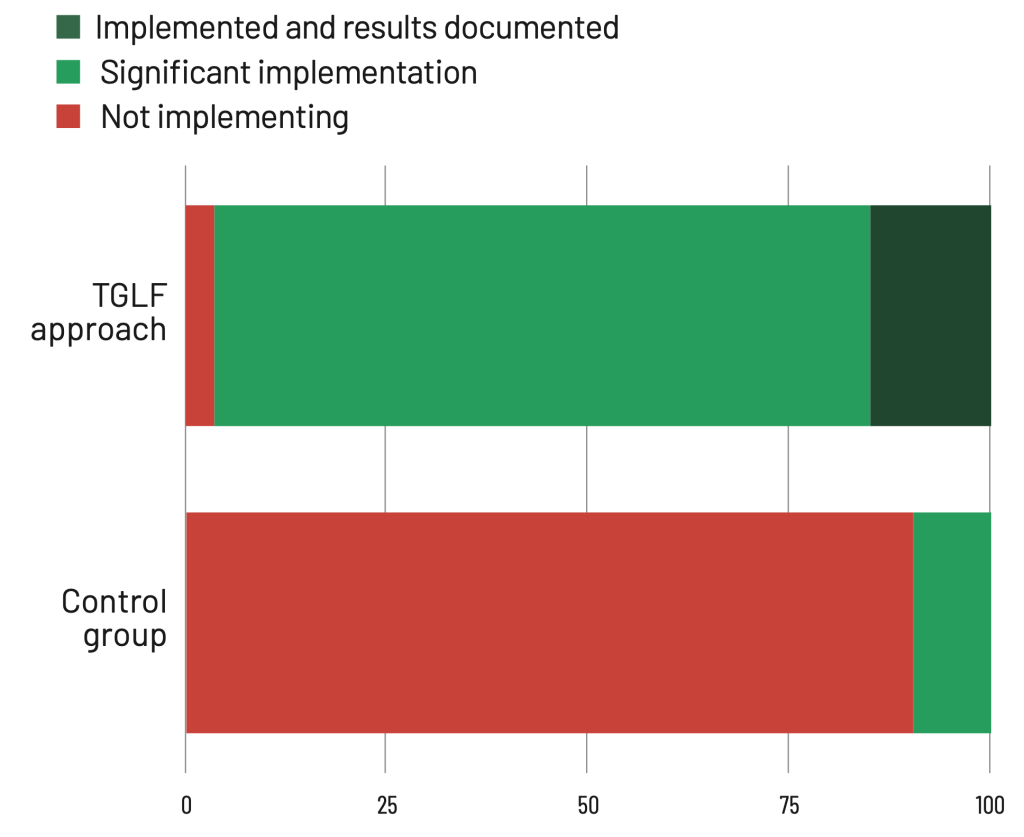
In the final stage of a comprehensive TGLF learning programme, alumni implement action plans they have developed together.
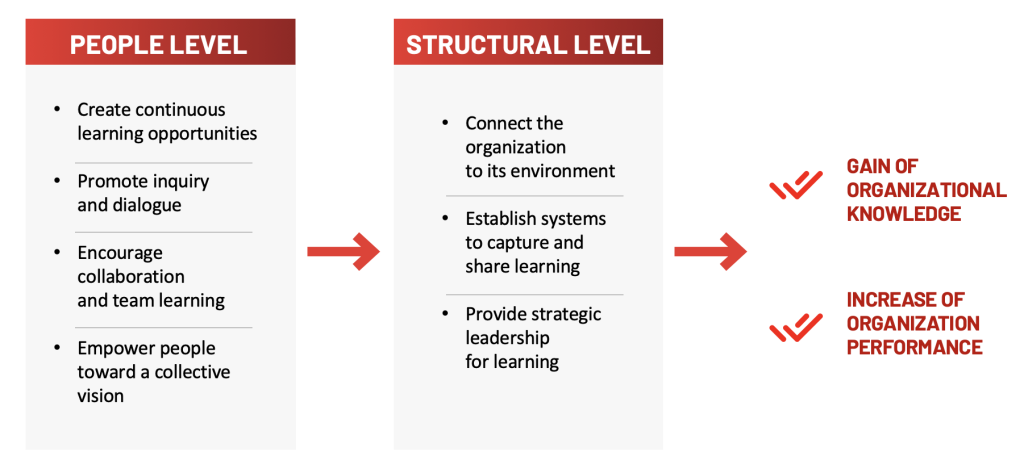
As developed by our founders, the TGLF learning-to-impact pathway draws on the best available evidence and our own practice in the learning sciences and multiple other disciplines. TGLF’s diagnostic instruments rapidly identify **the most effective strategies to develop people, teams, and networks **to drive change and performance.
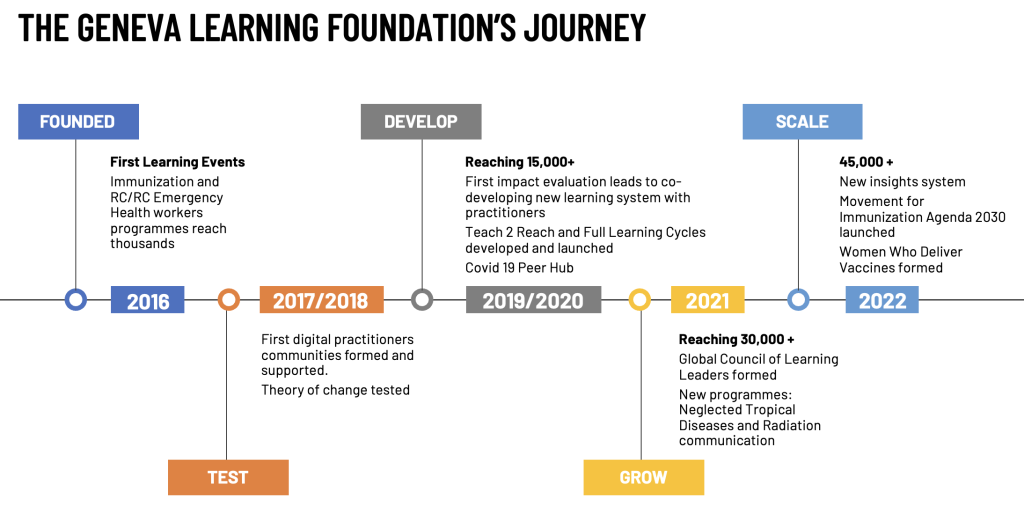
What we do and how we do it have both changed rapidly since we launched the Impact Accelerator, the key component Geneva Learning Foundation’s learning-to-action pathway. We catalyze large scale peer networks of frontline actors facing critical threats to our societies.
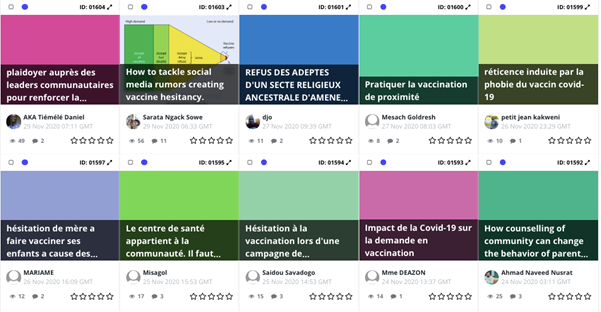
A digital human knowledge and action network of health workers: Challenging established notions of learning in global health When Prof Rupert Wegerif introduced DEFI in his blog post, he argued that recent technologies will transform the notions and practice of education. The Geneva Learning Foundation (TGLF) is demonstrating this concept in the field of global health, specifically immunization, through the ongoing engagement of

The Immunization Agenda 2030 (IA2030) and the Movement for Immunization Agenda 2030 represent two interconnected but distinct aspects of a global effort to enhance immunization coverage and impact. What is Immunization Agenda 2030? Immunization Agenda 2030 or “IA2030” is a global strategy endorsed by the World Health Assembly, aiming to maximize the lifesaving impact of vaccines over the decade from 2021 to 2030.
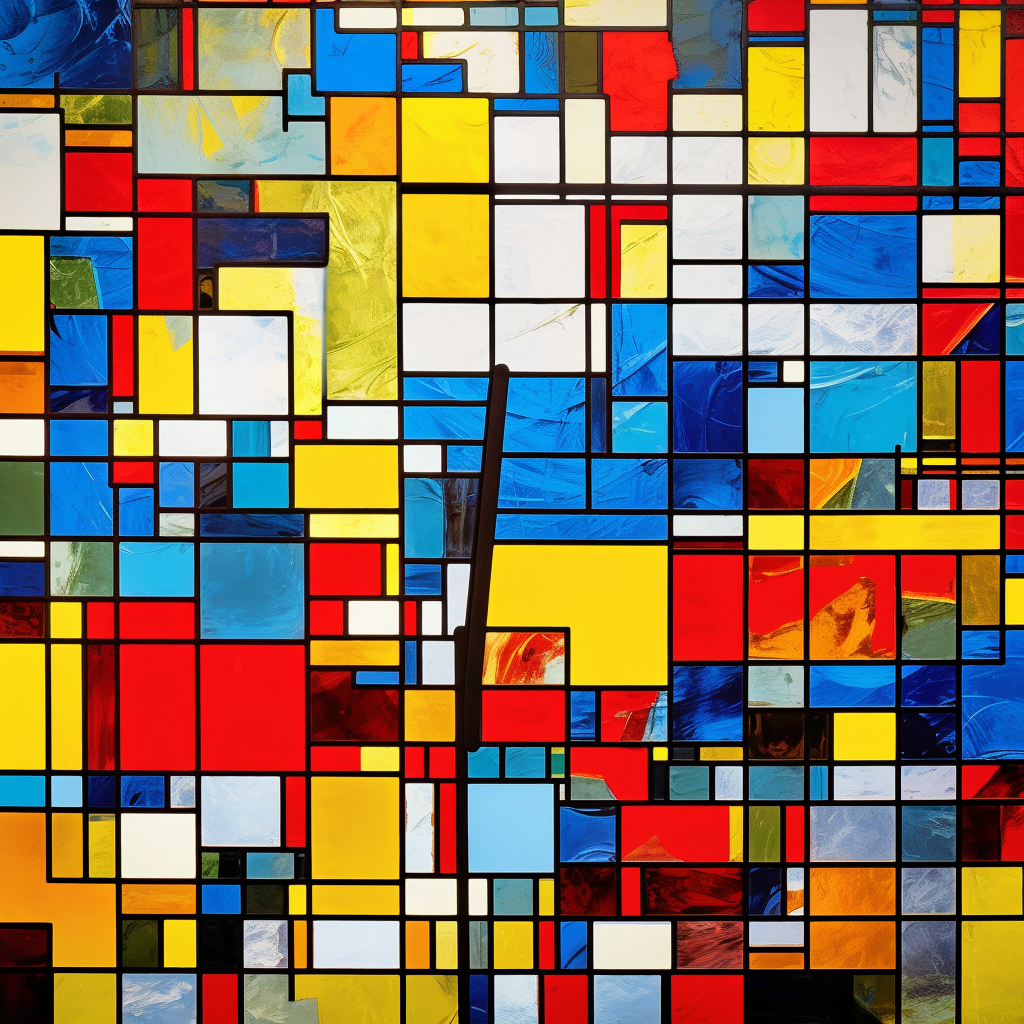
Excerpted from : Victoria J. Marsick, Rachel Fichter, Karen E. Watkins, 2022. From Work-based Learning to Learning-based Work: Exploring the Changing Relationship between Learning and Work , in: The SAGE Handbook of Learning and Work . SAGE Publications.

Part 1: The Journey Begins Suspended in the swirling galaxies beyond our own, the celestial stage of the Cat’s Eye Nebula shimmered. The nebula was a kaleidoscope of iridescent gases, dazzling cosmic dust, and radiant energy, an ideal sanctuary for the Astral Scholars. Their gathering place, the Obsidian Forum, was a levitating, jet-black platform, as if carved from a fragment of the universe itself.
Summary of highlights from the Full Learning Cycle, Monday 14 March Resources Anglophones: link to slidedeck; link to recording Francophones: link to slidedeck; link to recording
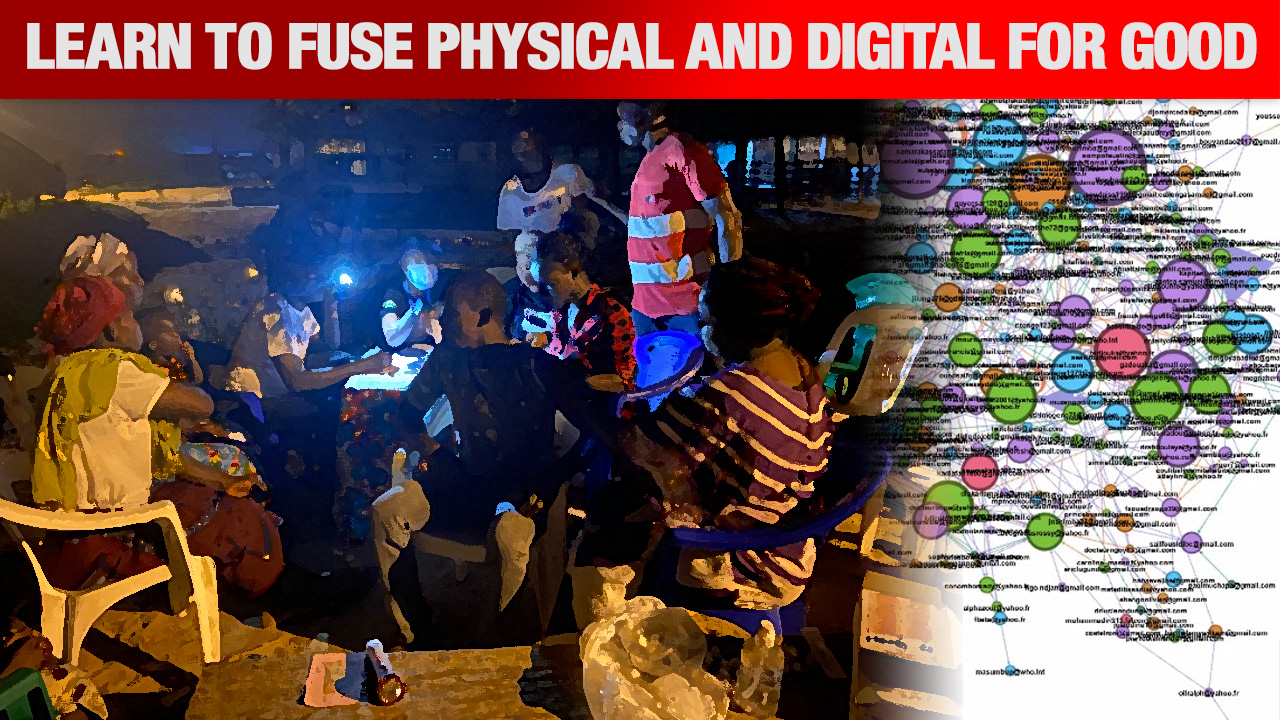
This week, the Geneva Learning Foundation (TGLF) is Devex’s “Presenting Partner”. We are proud to be sharing with Devex’s 170,000 NewsWire subscribers the remarkable progress and the results, outcomes, and impact we have achieved since the pandemic hit.